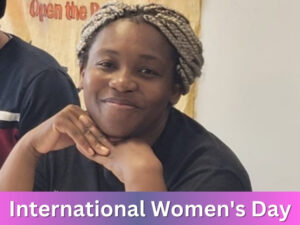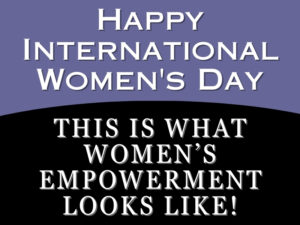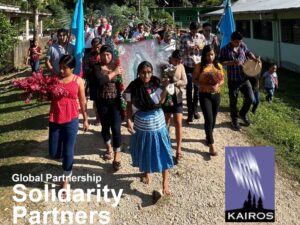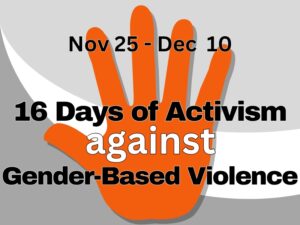The spirit of Berta Cáceres: The power and playful defiance of Indigenous women at the World Social Forum
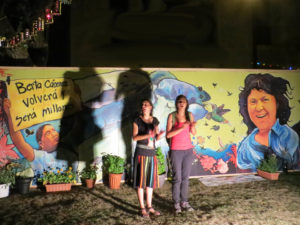
“Berta Caceres had three qualities that made her such a powerful advocate and activist for her people and for the environment. She was Indigenous, a woman and a feminist.”
Honduran journalist, Felix Molina was speaking at a vigil for his friend Berta Cáceres at the recent World Social Forum (WSF) in Montreal. He then added the refrain that we heard throughout the WSF: Berta will return in millions (Berta Cáceres volverá y sera en millones).
I felt like I was in the presence of the spirit of Berta Caceres, in the presence of these millions at the WSF.
I had the honour of accompanying a group of Indigenous women and organizations to the WSF. We were organizing the event “Convergence Assembly on Gendered Impacts: Indigenous women and resource extraction.” It was the culmination of KAIROS’ work of almost three years with Indigenous partners in Canada and the global South. This convergence of Indigenous women highlighted the particular and often devastating impacts of resource extraction on Indigenous women and amplified their powerful voices in defense of the environment and their communities.
The panelists spoke of their deep connection to the struggles within their communities, and despite the many challenges and obstacles presented by resource extraction, offered hope.
“We cannot afford to renounce hope,” said Gloria Chicaiza from Accion Ecologica in Ecuador. She spoke about the alternatives that are being lived in communities such as buen vivir, the Indigenous worldview of living with enough, as living utopias: “In the communities we are living this devastation, but we must sustain this hope.”
Jacinda Mack also spoke of hope. She is from the Secwepemc and Nuxalk Indigenous peoples and is the coordinator of the B.C. network, First Nation Women Advocating for Responsible Mining (FNWARM). She now lives in Williams Lake, one of the communities affected by the tailings spill at Mount Polley two years ago, which resulted in Canada’s worst mining disaster.
Jacinda described the impact of the mining disaster as a death in the community. She has worked tirelessly since to bring the company responsible for the spill to account. Yet, during her presentation she said she wanted to tell us a love story. She described her memory as a five-year-old of learning to fish on the Fraser River at night under the stars with her parents. “Which story would you prefer to tell?” she asked us.
Viviane Michel, president of Quebec Native Women, reminded us that the land does not belong to us. We belong to the land.
“Climate change touches our very essence,” she said. “We all need to ask ourselves what we can do for our Mother Earth? What action we should take? This is not just the responsibility of Indigenous peoples.” With a twinkle in her eye she said: “You need Mother Earth just as much as we do.”
Elana Nightingale of Pauktuutit Inuit Women of Canada talked about how Inuit women speak out at consultations, raising concerns about the impacts of resource extraction on their families and the environment. But they come up against technocrats and scientist who argue with statistics and well-funded public relations strategies, promoting the message that mining is a “win-win” proposition. Pauktuutit have responded by conducting their own research — research by Inuit women, about Inuit women and for Inuit women.
Gloria Chicaiza from Acción Ecológica in Ecuador spoke about the power of bringing ecological and feminist struggles together. Women have assumed the role of caring for vulnerable people within communities, not because they are naturally better at it, but because this gender role has been imposed on them by society. This care is vital to the health of communities and yet not valued by our economic system.
Perversely, actions which cause exploitation of the earth, including large scale mining, are perceived to have greater value instead. In the alternative development model proposed by Indigenous peoples in Latin America — buen vivir, or living well and with enough — care is a central value of a healthy community.
Connie Sorio, Asia Pacific coordinator from KAIROS, spoke on behalf of Beverly Longid from the Indigenous Peoples Movement for Self-Determination and Liberation in the Philippines. One of the concerns with having the WSF in a northern country like Canada was that people would be deterred or prevented from participating because of visas. Sadly, this proved to be true.
Beverly was one of more than 200 people from the Global South who were not issued a visa. Connie spoke of the need to have Indigenous women from affected communities at these forums, not just those who for various reasons are better equipped to get visas.
Alma Brooks, a grandmother and member of the Maliseet Grand Council, began by telling us that her name means the power of voice. I have seen and heard the power of this voice in the struggle against fracking and the pipeline in her community in New Brunswick, in consultations with governments and industry and at the United Nations. At our convergence assembly, Alma called for the genuine implementation of the UN Declaration on the Rights of Indigenous Peoples (UNDRIP).
Later, Alma used the power of this voice to tell part of the creation story of the Maliseet people at an artistic event called “Climate Change — Hope in Action through the Arts.” (She teased us that the whole creation myth would take three days). She had the audience enthralled, in tears and in laughter, as she told us about the creation of Turtle Island, where the little muskrat dives down into the depth of the river and drowns while retrieving a small piece of dirt from the river bottom that eventually becomes Turtle Island, but is brought back to life because of his courage and selflessness.
Alma’s smile and sense of humour as she told this story, Jacinda’s account of learning to fish as a five-year-old, Viviane’s glint in her eye as she told me — the time-keeper during the panel — that holding a feather allowed her to speak as long as she liked, these experiences reminded me of something that Felix Molina had said at Berta Cáceres’ vigil:
“There are another three qualities that made Berta so effective in speaking truth to power and so dangerous in the eyes of her enemies,” he said. “Her joy, her natural seductiveness and her playful defiance in the face of authority.”
Despite the heaviness of issues presented and discussed at the WSF and the magnitude of the problems we face in the world, I felt this joy, this playfulness and this defiance throughout the week I spent with these women at the WSF. And I felt so lucky and honoured to share this. These qualities are essential for the resilience and the strength of our movements for social change. These voices bring hope and spirit to our work. Yet, all too often, they are marginalized and invisiblized by louder, more privileged and more familiar voices. We need to work to ensure these voices are present, amplify them and remember this joy.
Rachel Warden is KAIROS’ Latin American Partnerships and Gender Justice program coordinator.
Originally published on rabble.ca on August 17, 2016









